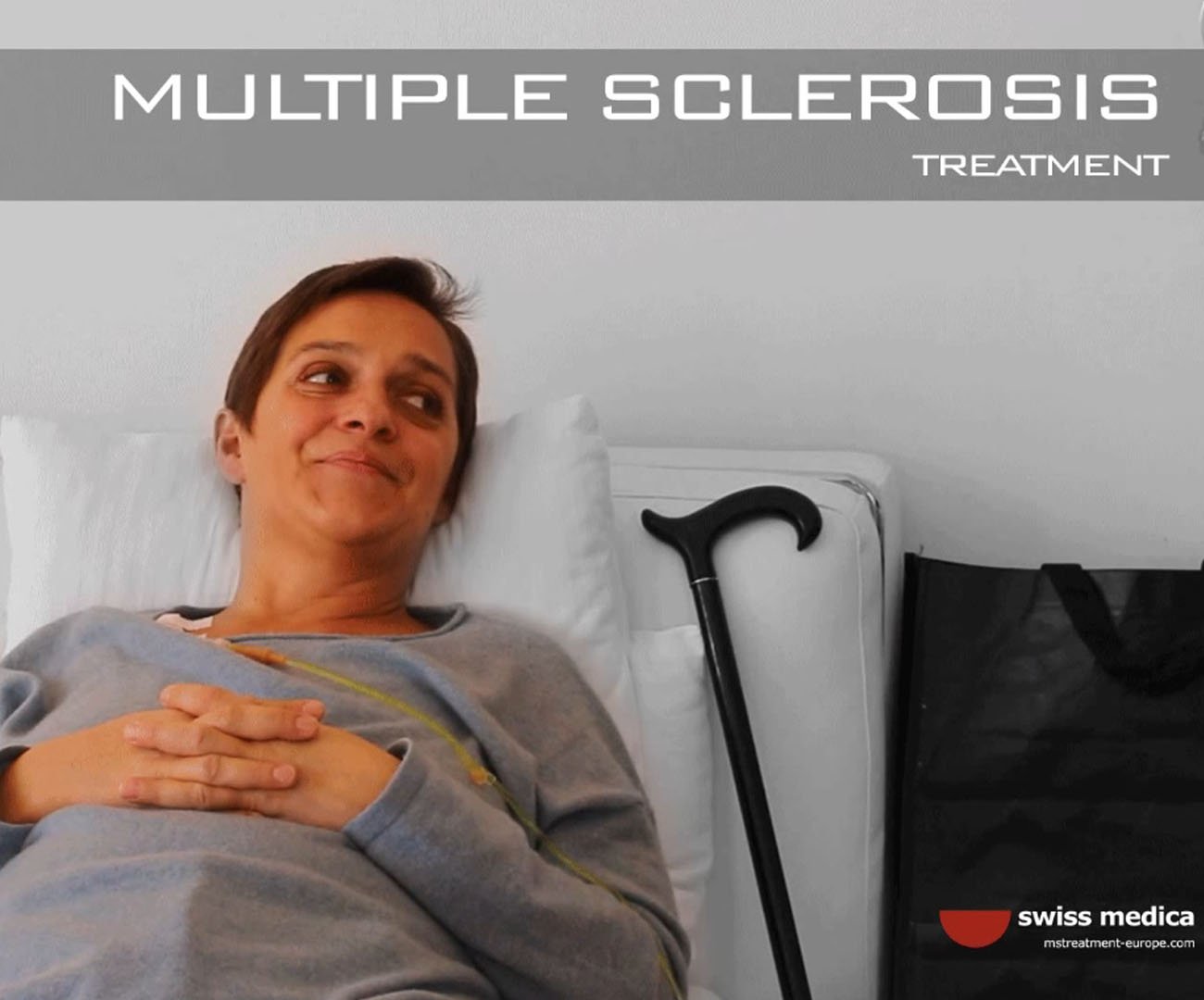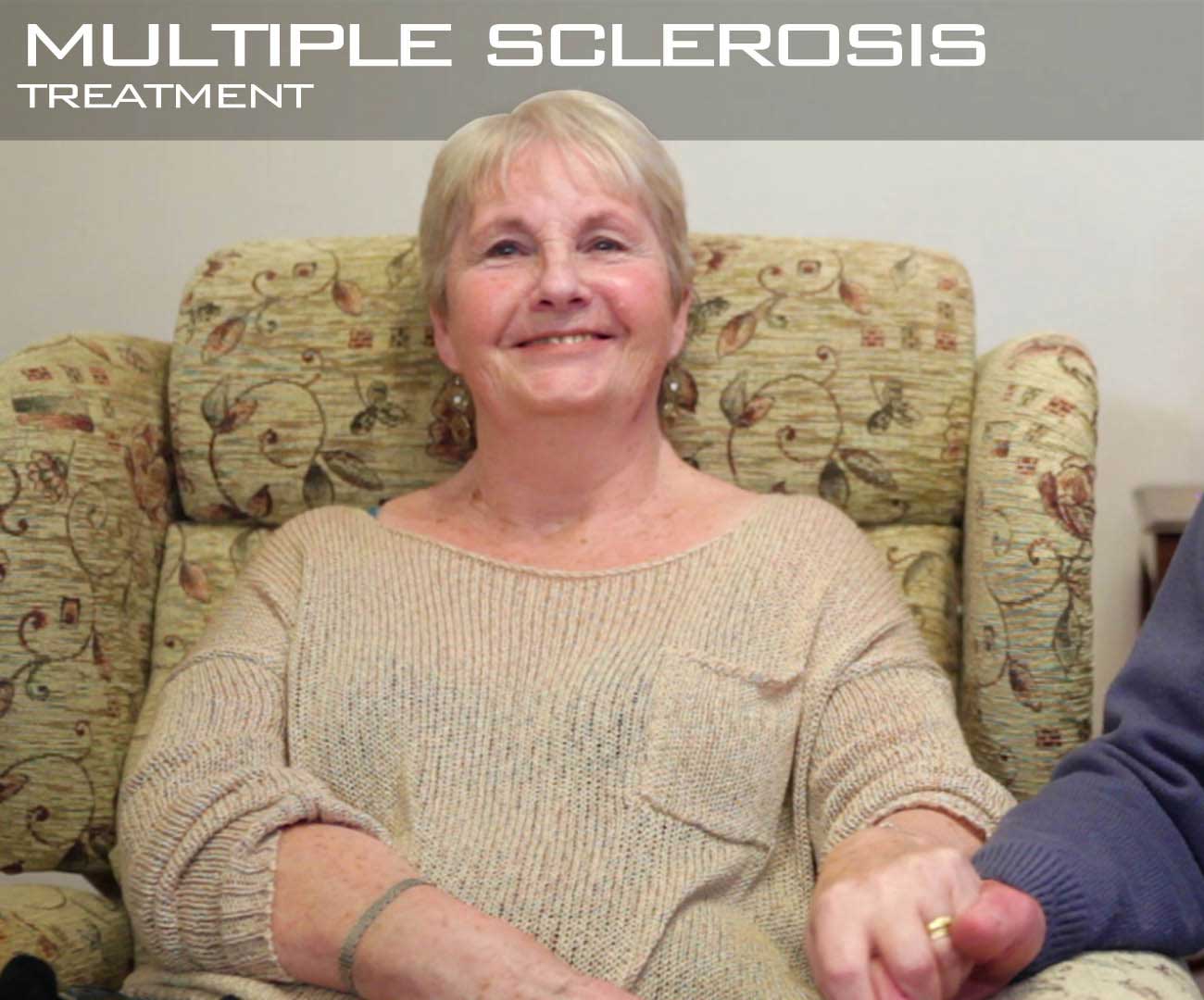Case Studies
Analyzed symptoms are chosen by the effect they have on quality of life of a particular patient...

12 Jan 2020
Introduction
Mechanisms of Multiple Sclerosis Development and Its Symptoms
Multiple Sclerosis Treatment Strategies
Disease Modifying Medications
Safety Issues
Treatment of Acute Relapses
Symptomatic Treatment
Alternative Approaches for Multiple Sclerosis Management
Prospects of Stem Cell Therapy for Multiple Sclerosis
List of References
2-3 million people globally are diagnosed with multiple sclerosis (MS) [1]. Most of them are adult patients in their 20s-40s. Currently, the treatment for multiple sclerosis remains a challenge as there is no medication that can combat the disease completely. Management of multiple sclerosis includes disease-modifying therapy, drugs to treat acute relapses, and symptomatic treatment. There is also a range of complementary and alternative therapies [2]. Researchers are focused on finding new targets for drug therapy and effective therapeutic substances along with innovative approaches such as stem cell treatment.

Multiple sclerosis is a chronic disease that is characterized by inflammation in the nervous system (the spinal cord and/or the brain). The inflammation is caused by immune system activation. Its specific cells damage the coating of nerve fibers (myelin), leading to impaired conduction of impulses from the brain to other parts of the body and the development of a variety of neurological symptoms. The manifestation of the disease is individual and depends on the location of the neuronal damage. However, the following complaints may be highlighted that are common in most patients:
This video demonstrates how nerves work and what happens to them when the disease occurs [3].
Though the exact causes of multiple sclerosis are still unknown, it was shown that the interaction of both hereditary and environmental factors (stress, viruses, vitamin D deficiency, etc.) contributes to the development of the disease [4].
The cure for multiple sclerosis has not yet been found. Several types of drugs have been shown to combat neuroinflammation and slowdown neuronal damage [5, 6]. Therapy with these medications is called disease-modifying treatment. Usually, additional therapy includes treatment of acute attacks and symptom management. Exercises and physical therapy also play a key role in comprehensive management of the disease.
Disease-modifying medications reduce both the frequency and severity of relapses and slow down the development of damage in the brain and/or spinal cord and the accumulation of disability. They are available in several forms depending on the route of administration.
Teriflunomide suppresses the immune system by inhibiting the division of cells, which are responsible for relapses of multiple sclerosis.
Fingolimod prevents immune cells (lymphocytes) to enter the central nervous system by attaching to them. Lymphocytes with bonded fingolimod are seized in the lymph glands and cannot cause inflammation and damage to the neurons.
Dimethyl fumarate is a drug whose mechanism of action is not yet completely clear. It is assumed to modulate the immune system without suppressing it.
Cladribine was approved in 2019 in the USA and 1-2 years earlier in EU countries for the treatment of multiple sclerosis. This is a chemotherapeutic agent being used for the treatment of certain types of blood cancer. It reduces two types of immune cells involved in the deterioration of the central nervous system.
Siponimod is the latest medication approved by the FDA. It has not yet been approved in Europe. Like fingolimod, it prevents penetration of immune cells into the central nervous system.
Alemtuzumab induces the death of immune cells responsible for neurodegeneration in multiple sclerosis.
Mitoxantrone prevents the division of immune cells.
Ocrelizumab suppresses the immune system. Its approval may be terminated if the manufacturer does not provide results of additional safety studies on this drug.
Natalizumab prevents the penetration of immune cells from blood into the central nervous system.
More than a dozen other medications have shown promising preliminary results in their current clinical studies*:
|
|
|
*Several years are required to conduct more extensive research in a larger number of participants. However, some drugs from the list – rituximab, simvastatin, ozanimod, phenytoin, laquinimod, ponesimod – may have more clear results available as soon as 2020-2023.

Treatment of multiple sclerosis is always an art of balance between efficacy and safety. Disease-modifying drugs provoke serious side effects, and the more effective the drug is, the more severe the reaction it may cause. National regulatory agencies, such as the FDA in the US and EMA in Europe, monitor new data on safety and may deny a drug due to safety reasons (as it was in 2018 when EMA banned daclizumab for risk of serious and potentially fatal immune reactions affecting the brain, liver and other organs) [7]. In April 2019, EMA initiated a review of alemtuzumab due to new reports of immune-mediated conditions and problems with the heart and blood vessels for patients on this medicine, including fatal cases, and more common side effects that significantly impacted the patient’s quality of life. Summary of data on the efficacy of disease modifying treatments’ abilities to postpone relapses and safety of licensed medications for multiple sclerosis is compiled in Table 1 [5, 8].
| Drug Name (International Non-proprietary Name) | Efficacy Rate | Common Side Effects | Possible Serious Side Effects |
| Interferon beta-1a | 33% |
|
|
| Interferon beta-1b | 34% |
|
|
| Peginterferon beta-1a | 30% |
|
|
| Glatiramer acetate | 29% |
|
|
| Dimethyl fumarate | 51% |
|
|
| Teriflunomide | 35% |
|
|
| Fingolimod | 52% |
|
|
| Natalizumab | 68% |
|
|
| Cladribine | 58% |
|
|
| Alemtuzumab | 52% |
|
|
| Ocrelizumab | 47% |
|
|
| Siponimod | 46% |
|
|
Two options are available now to manage sudden attacks of the disease (relapses):
Individual differences in signs and symptoms of multiple sclerosis, as well as different tolerances to disease-modifying medications and symptomatic treatment, require health specialists to find a personalized approach in each case of multiple sclerosis [9]. Current approaches to managing symptoms of multiple sclerosis include both drug therapy and rehabilitation programs. They focus on minimizing disease symptoms and increasing the quality of life. Regular exercise is another key factor in effective management of multiple sclerosis.
Complementary and alternative therapies are used in addition to conventional treatment recommended by a physician. They aim to improve the overall quality of life by allowing the patient to cope with the symptoms of multiple sclerosis. The following therapies have shown to be effective in the management of symptoms in patients with certain types of Multiple Sclerosis [2]:
Other studied complementary and alternative therapies, such as bee venom, low-fat diet with omega-3 fatty acid supplementation, Cari Loder regimen (Lofepramine combined with L-phenylalanine and vitamin B1 plus mind-body practices) either did not show any benefits compared to the control group of patients or had insufficient evidence base [2].
Individual differences in signs and symptoms of multiple sclerosis, as well as differences in tolerance to disease-modifying medications and symptomatic treatment, require health specialists to find a personalized approach in each case of multiple sclerosis [9].

Multiple sclerosis treatment strategies, which include both existing and new drugs to manage disease progression, acute relapses, and symptoms, can be successfully combined with stem cell therapy for long-lasting benefits for patients. Leading scientific and industry societies pay huge attention to the role of regenerative cell biology in the development of care strategies for multiple sclerosis [10]. An increasing number of studies show promising results when using stem cell therapy in addition to other therapies for multiple sclerosis [11], [12]. One of them is to re-set the patient’s immune system through chemotherapy followed by a stem-cell replacement of the immune system using the patient’s own or donor stem cells [13].
Another approach is to use mesenchymal (bone marrow) stem cells sourced from the patient (autologous) and/or obtained from a donor to cure lesions in the central nervous system and to recover functional neurological deficits [14], [15], [16], [17], [18]. Bone marrow-derived mesenchymal stem cells have been shown to reduce inflammatory responses, stimulate neuronal stem cell differentiation, and promote the regeneration of damaged areas in the central nervous system [22]. Both strategies show encouraging results in efficacy as well as safety [11], [12], [19], [20], [21].
Consult our Medical Advisor on stem cell treatment opportunities for multiple sclerosis >>>
– Published on January 12, 2020
Testimonials
What they say about us

Shaun Lawrence battled multiple sclerosis for many years before deciding to come to Swiss Medica clinic. Limp on his right leg, urinary and bowel problems were some of the main issues he suffered from. After having a stem cell treatment his life changed completely. He is very satisfied with the experience, as well as the overall results of the treatment.
continue
For me, since I got back after my 2 weeks of having my treatment, within 2 days of being home speaking to friends and family around the world, they all noticed the difference in my speaking, cognitively and I was able to listen and integrate with conversations with my family at home.
A wonderful experience, a wonderful care are these very caring people, yes.
continue
Everything is done naturally and pleasantly here. Actually I do not feel sick, it is the most important thing – during these 12 days I haven’t felt sick.
I didn’t have the impression that I was treated like a patient. I was treated like a normal person, it is true I take medicines, receive infusions and still have some pain, but I never felt like I was in the hospital.
continue
Linda Cole struggled with multiple sclerosis for over 30 years. She decided to give stem cell treatment a try, even though she didn’t expect much from it. She was pleasantly surprised, as her symptoms improved and reversed drastically. Her ability to move, walk and think much better than before assured her she made the right decision by coming to Swiss Medica.
continueAll form fields are required.